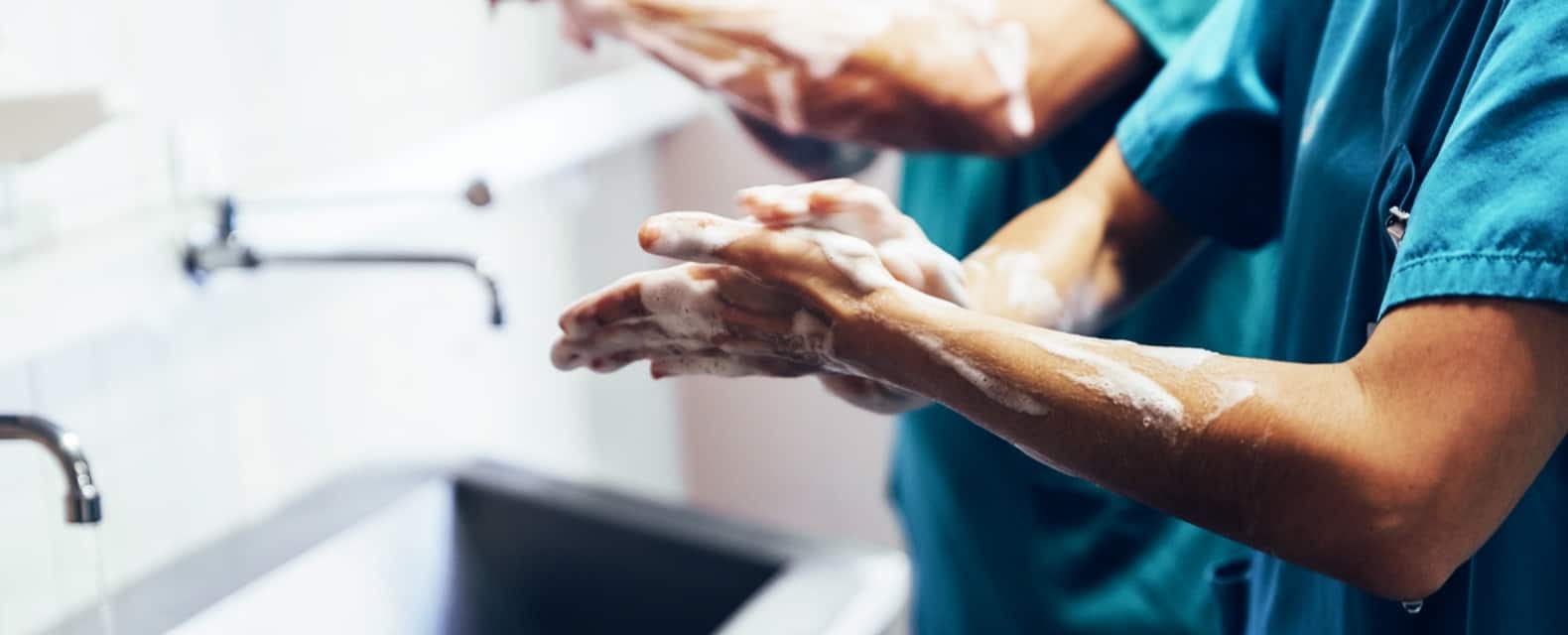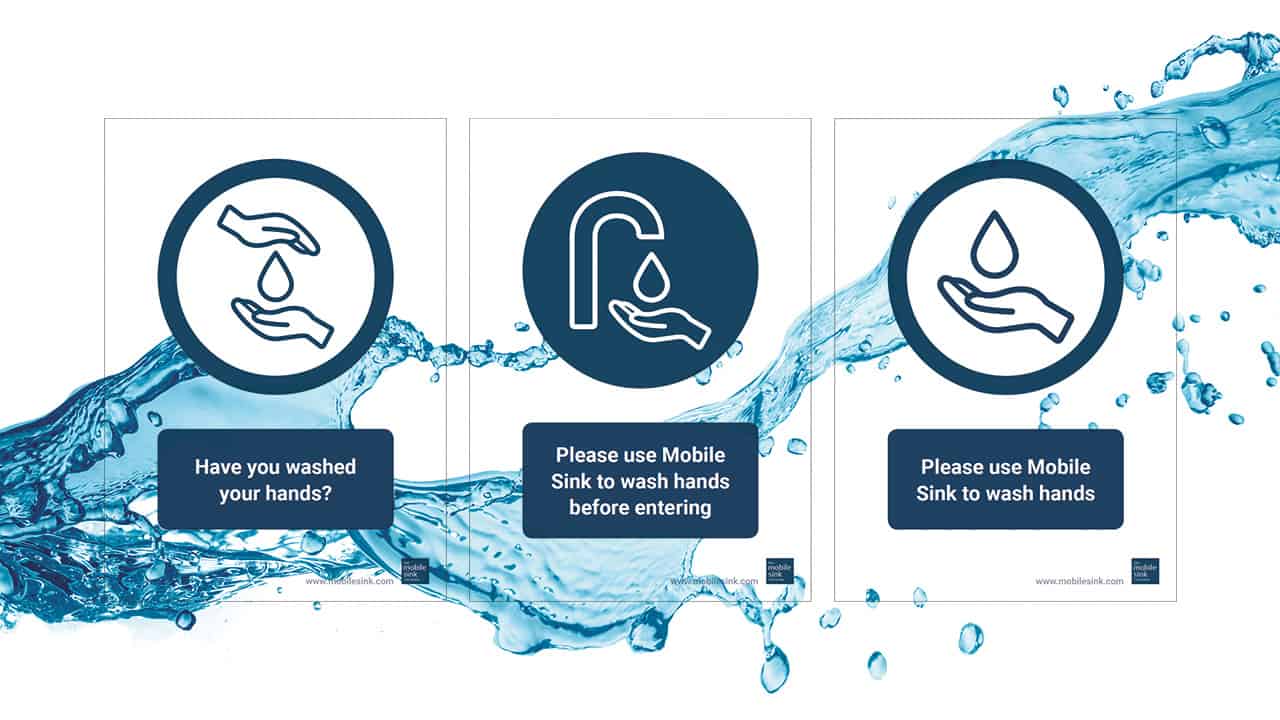
Control and prevention of infection is imperative in order to deliver a safe and effective service and environment for patients, staff and visitors.
That’s why at the Mobile Sink Company, we provide portable hand wash solutions for a variety of medical environments and healthcare applications, enabling instant hot water access wherever and whenever it is needed.
Why should we wash our hands?
Handwashing with soap removes germs from hands. This helps prevent infections because:
- We frequently touch our eyes, nose, and mouth without even realising it. These germs can then be passed to others.
- Germs from unwashed hands can be transferred to other objects, like handrails, tabletops, or door handles, and then transferred to another person’s hands.
- Reducing germs through handwashing therefore helps prevent diarrhoea and respiratory infections and may even help prevent skin and eye infections.
- In the medical industry patients already have a lowered immune system therefore it is important to ensure correct handwashing is carried out.
The most serious infections that are spread by germs in healthcare are spread by the actions of people, both staff and visitors. Ensuring that hands are clean at all times is a great way to prevent infections.
However, it has been noted that studies show that on average, healthcare providers do not clean their hands enough, it has been shown that in some cases hand hygiene is carried out less than half of the times it should be. This of course contributes to the spread of healthcare-associated infections. Every patient is at risk of getting an infection while they are being treated for something else. Even healthcare providers are at risk of getting an infection while they are treating patients. Preventing the spread of germs is especially important in hospitals and other facilities such as dialysis centres and nursing homes, where the patients being treated have a lower immune system.
A routine/social hand wash
This is deemed as the appropriate level of decontamination for general social contact and most clinical care activities “Doctors and Nurses should do more to stop hospital patients developing infections” an NHS watchdog says – BBC News Reports.
Sinks and Disposal Facilities
Sinks being used for both hand wash and cleaning equipment is not acceptable as this will increase the risk of hand and environmental contamination. Utility rooms should contain the following:
- A separate sink for cleaning equipment
- Clinical hand wash basin – for decontamination and one for staff to wash their hands.
Portable hand wash sink units with hot and cold water are suitable where it is not possible to hard plumb the sink. These can also provide a mobile hand wash solution for medical environments.
Hygiene procedures for hospital visitors
All visitors should ensure they follow the hand wash guidelines. They should ensure they wash their hands using soap and water or alcohol hand rubs, which can found around the hospital. This should be done before they enter patient areas and when the leave patient areas, and they should use an effective hand decontamination technique to ensure minimal contamination and the spread of germs.
The National Institute for Health and Care Excellence (NICE) have highlighted that poor hand washing techniques by both medical professionals and hospital visitors can be overlooked and this in turn may threaten patient safety.
Techniques to follow:
- Wetting hands with warm water
- Using preferably liquid soap ensure that you apply a good amount to your hands
- Then spend 15 seconds rubbing this soap across all surfaces of the hand, including in between your fingers and your nail area
- Take the time to rinse the soap off your hands thoroughly
- The drying of your hands should also be done using preferably a disposable paper towel – re-usable drying materials hold bacteria which can threaten patient safety
- The taps should then be turned off with a paper towel to prevent recontamination of the hand wash unit, or ideally elbow operated or contactless cleaning (such as a motion sensor, footswitch or infra-red tap) sink units to be made available
- Splash backs to be fitted at the back of all hand wash sink units
In medical treatment rooms where vaccinations are carried out the staff must ensure that there is a well-maintained hand wash sink with a liquid soap this must be must be where possible available at each clinic, ideally this should be situated in the immunisation area if this is not possible then a hand wash sink unit must be identified nearby and this sink should be dedicated for hand wash only (not suitable for equipment decontamination).
Hands should be washed both before and after carrying out the immunisation for each patient and arms must be bare below the elbow to ensure further hand hygiene.
When preparing vaccines thorough hand washing must take place and all equipment must be cleaned again here we see the importance of separate sinks for equipment and hand washing.
We see in Pharmacies that arrangements must be made to ensure hygiene is set at a high standard. There must be an available hand wash sink in the toilets with both hot and cold water and an antibacterial liquid soap. Where medicines are prepared there needs to be a separate hand wash sink unit here.
British Medical Acupuncturist Society 2016
A new code of practice was launched to state that:
- You must have suitable hand wash and sanitary facilities.
- You must ensure that there is a wash-hand basin with a supply of clean hot running water located in the treatment room or in the near vicinity (i.e. not necessitating opening and closing of doors by hand) and solely for use by you and other practitioners (i.e. not for use by patients).
Looking for a portable hand wash solution? Get in touch with our specialist team for any enquiries on 01183805302. You can view our range of mobile sinks perfect for medical and healthcare environments here.
With hire or buy options available, we can cater to your portable hand washing needs.

